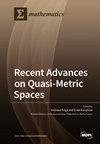Enhancing Autism Spectrum Disorder Classification with Lightweight Quantized CNNs and Federated Learning on ABIDE-1 Dataset
IF 2.2
3区 数学
Q1 MATHEMATICS
引用次数: 0
Abstract
Autism spectrum disorder (ASD) is a complex neurodevelopmental condition that presents significant diagnostic challenges due to its varied symptoms and nature. This study aims to improve ASD classification using advanced deep learning techniques applied to neuroimaging data. We developed an automated system leveraging the ABIDE-1 dataset and a novel lightweight quantized one-dimensional (1D) Convolutional Neural Network (Q-CNN) model to analyze fMRI data. Our approach employs the NIAK pipeline with multiple brain atlases and filtering methods. Initially, the Regions of Interest (ROIs) are converted into feature vectors using tangent space embedding to feed into the Q-CNN model. The proposed 1D-CNN is quantized through Quantize Aware Training (QAT). As the quantization method, int8 quantization is utilized, which makes it both robust and lightweight. We propose a federated learning (FL) framework to ensure data privacy, which allows decentralized training across different data centers without compromising local data security. Our findings indicate that the CC200 brain atlas, within the NIAK pipeline’s filt-global filtering methods, provides the best results for ASD classification. Notably, the ASD classification outcomes have achieved a significant test accuracy of 98% using the CC200 and filt-global filtering techniques. To the best of our knowledge, this performance surpasses previous studies in the field, highlighting a notable enhancement in ASD detection from fMRI data. Furthermore, the FL-based Q-CNN model demonstrated robust performance and high efficiency on a Raspberry Pi 4, underscoring its potential for real-world applications. We exhibit the efficacy of the Q-CNN model by comparing its inference time, power consumption, and storage requirements with those of the 1D-CNN, quantized CNN, and the proposed int8 Q-CNN models. This research has made several key contributions, including the development of a lightweight int8 Q-CNN model, the application of FL for data privacy, and the evaluation of the proposed model in real-world settings. By identifying optimal brain atlases and filtering methods, this study provides valuable insights for future research in the field of neurodevelopmental disorders.在 ABIDE-1 数据集上利用轻量级量化 CNN 和联合学习增强自闭症谱系障碍分类能力
自闭症谱系障碍(ASD)是一种复杂的神经发育疾病,由于其症状和性质各不相同,给诊断带来了巨大挑战。本研究旨在利用应用于神经影像数据的先进深度学习技术改进 ASD 分类。我们利用 ABIDE-1 数据集和新型轻量级量化一维(1D)卷积神经网络(Q-CNN)模型开发了一套自动系统,用于分析 fMRI 数据。我们的方法采用了带有多个脑图集和过滤方法的 NIAK 管道。最初,感兴趣区(ROI)通过切线空间嵌入被转换成特征向量,然后输入 Q-CNN 模型。拟议的 1D-CNN 通过量化感知训练(QAT)进行量化。量化方法采用 int8 量化,因此既稳健又轻便。我们提出了一个联盟学习(FL)框架来确保数据隐私,它允许在不同数据中心进行分散训练,而不会影响本地数据的安全性。我们的研究结果表明,在NIAK管道的过滤-全局过滤方法中,CC200脑图谱为ASD分类提供了最佳结果。值得注意的是,使用 CC200 和过滤-全局过滤技术,ASD 分类结果的测试准确率高达 98%。据我们所知,这一成绩超越了该领域以往的研究,凸显了从 fMRI 数据中检测 ASD 的显著提高。此外,基于 FL 的 Q-CNN 模型在 Raspberry Pi 4 上表现出了强大的性能和高效率,突显了其在现实世界中的应用潜力。我们将 Q-CNN 模型的推理时间、功耗和存储要求与一维 CNN、量化 CNN 和拟议的 int8 Q-CNN 模型进行了比较,从而展示了 Q-CNN 模型的功效。这项研究做出了多项重要贡献,包括开发轻量级 int8 Q-CNN 模型、应用 FL 来保护数据隐私,以及在真实世界环境中评估所提出的模型。通过确定最佳大脑图谱和过滤方法,本研究为神经发育障碍领域的未来研究提供了宝贵的见解。
本文章由计算机程序翻译,如有差异,请以英文原文为准。
求助全文
约1分钟内获得全文
求助全文
来源期刊

Mathematics
Mathematics-General Mathematics
CiteScore
4.00
自引率
16.70%
发文量
4032
审稿时长
21.9 days
期刊介绍:
Mathematics (ISSN 2227-7390) is an international, open access journal which provides an advanced forum for studies related to mathematical sciences. It devotes exclusively to the publication of high-quality reviews, regular research papers and short communications in all areas of pure and applied mathematics. Mathematics also publishes timely and thorough survey articles on current trends, new theoretical techniques, novel ideas and new mathematical tools in different branches of mathematics.
 求助内容:
求助内容: 应助结果提醒方式:
应助结果提醒方式:


